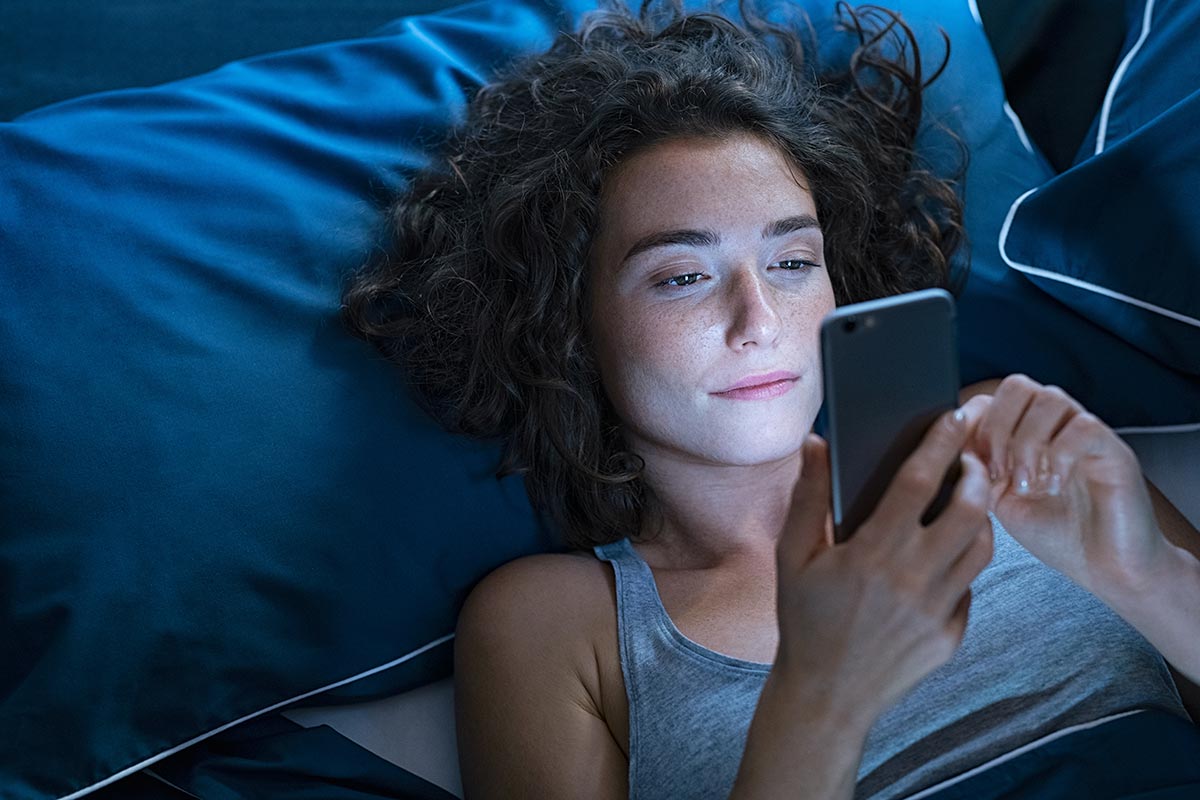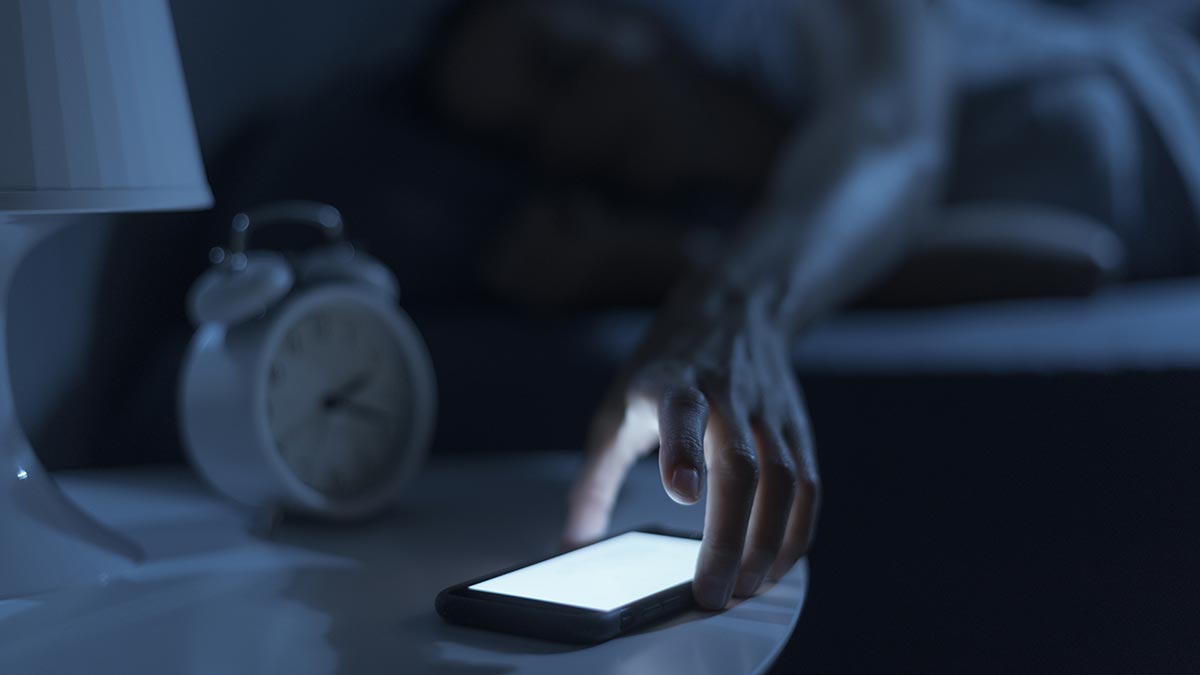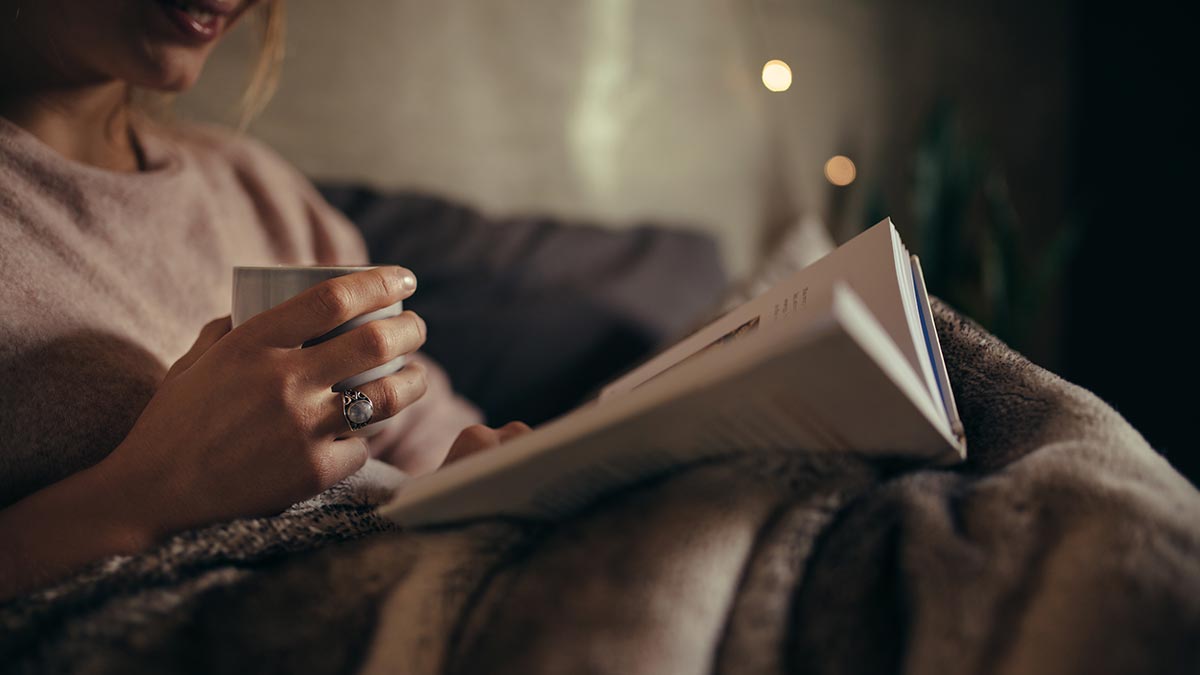Is Your Late Night Phone Use Disrupting Your Sleep Quality?

It may seem harmless to swipe, tap, scroll, double tap, and pinch your smartphone late at night, but mounting evidence suggests it’s detrimental to your sleep hygiene. You may have already noticed it. That’s because today, smartphones have become almost inseparable from our routines, including the time we spend winding down for bed.
Experts, however, are increasingly warning that these devices can adversely affect your sleep quality, suggesting the blue light from screens, constant notifications, and mental engagement may all interfere with your natural sleep rhythms. Many, ironically, have posted about it on TikTok.
Hafiz Shariff, a sleep expert and founder of Owl + Lark, explains how phones interfere with the body’s natural circadian rhythm, the internal clock that helps regulate sleep. “Smartphones can interfere with our sleep by throwing off our natural circadian rhythms,” he says. “The blue light from screens tricks our brains into thinking it’s still daytime, delaying the release of melatonin, a hormone essential for sleep.”
Melatonin, which naturally rises in the evening, helps signal to the brain that it’s time to wind down, but blue light can disrupt its production by hours. According to Shariff, even minimal blue light exposure can make it challenging for the body to ease into rest.

In addition to light, notifications play a significant role in this disruption. “Those constant notifications keep us on alert, making it hard to wind down,” Shariff notes. He advises against late-night emails, social media, or getting hooked on apps, as these habits heighten mental stimulation and make it harder for the brain to relax before bed.
Mental stimulation, especially before sleep, interferes with the brain’s natural rhythm, leading to a longer delay in falling asleep and, throughout the night, poorer sleep quality overall.
Carolina Goncalves, Superintendent Pharmacist at Pharmica, adds that smartphones’ disruption of sleep quality goes beyond bright lights and jarring alert tones. “Smartphones emit radiofrequency electromagnetic fields (RF-EMFs) used to communicate wirelessly, and studies show these fields can influence brainwave patterns during sleep,” Goncalves explains.
The effects of blue light — a source of light emitted from digital screens and LED lights — are similarly significant, Goncalves notes. “Blue light suppresses the production of melatonin, a hormone responsible for regulating the body’s circadian rhythm—the internal clock that signals when it’s time to sleep and wake,” she explains. “This affects how long it takes to fall asleep and increases the likelihood of waking up during the night, leading to fragmented and less restorative sleep.” Not ideal.
Both experts emphasise the importance of cultivating a digital routine that limits phone exposure before bed. Shariff recommends what he calls a “Digital Sunset.” “About an hour before bed, I turn off my devices and opt for something calming, like reading or listening to soft music,” he says. “Good sleep hygiene relies on routine: dimming the lights, using blackout curtains, and keeping the room cool.”
Goncalves agrees, suggesting that a “digital curfew” of at least 30 to 60 minutes before sleep can help the body wind down naturally, giving melatonin production a chance to start without interruption.
Shariff also advises making a habit of setting physical boundaries with devices, including charging them outside the bedroom. “It takes some practice to disconnect, but once you do, you can train your internal clock and appreciate the quiet of unplugged time,” he says. Building these habits takes commitment but can lead to more peaceful and restorative sleep in the long run.

4 Tips to Try Tonight for Better Sleep
For those ready to reclaim their sleep, Goncalves offers four practical tips:
- Activate blue light filters. Use your phone’s blue light filter (often called “night mode” or “night shift”) to reduce blue light exposure in the evening. This will help maintain melatonin production and protect your circadian rhythm.
- Establish a digital curfew. Turn off electronic devices at least 30 to 60 minutes before bedtime and replace them with relaxing activities like reading a book or practising meditation. Without blue light and mental stimulation, melatonin production can begin, facilitating a smoother transition into sleep.
- Use airplane mode. If you need to keep your phone nearby, switch it to “airplane” mode to reduce exposure to RF-EMFs and eliminate disturbances from notifications during the night.
Designate a charging station outside the bedroom. Keeping your phone out of the bedroom helps prevent the temptation to check it during the night, promoting undisturbed, quality sleep. - Reducing screen time before bed may feel challenging initially, but prioritising good sleep hygiene is a step toward long-term well-being. By creating a bedtime routine free from digital distractions, you can create healthier sleep patterns and enjoy the benefits of a well-rested mind and body.


















